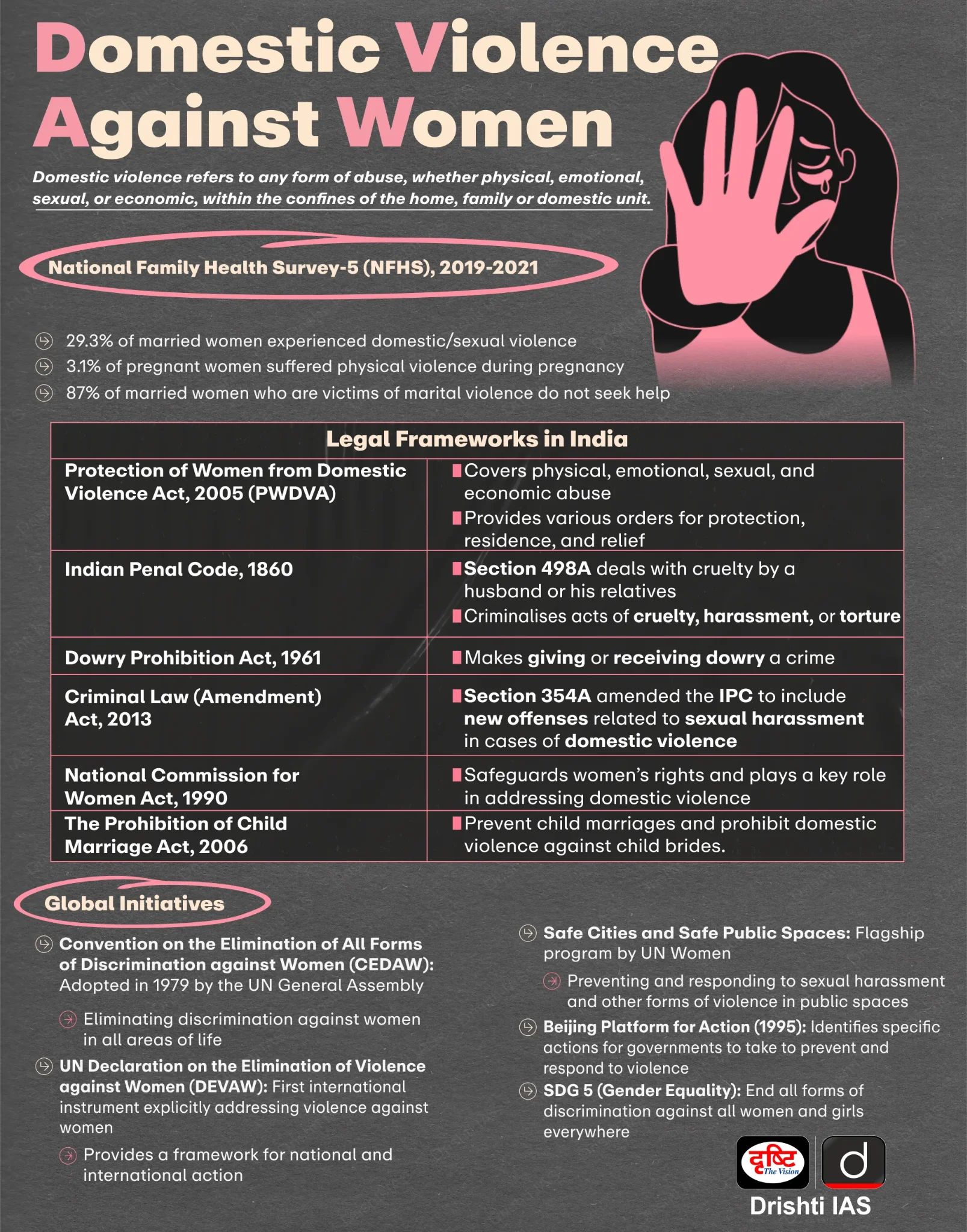One Stop Centres Scheme | 25 Jul 2025
Why in News?
The Delhi High Court issued multiple directions to the Delhi government concerning the poor condition of One Stop Centres (OSCs) set up under the One Stop Centre scheme to aid women affected by violence.
What is One Stop Centres Scheme?
- About: Launched by the Ministry of Women and Child Development (MWCD), OSCs aim to provide integrated support and assistance to women affected by violence in private and public spaces, including family, community, and workplace settings.
- Also known as Sakhi Centres, they form a key component of the Sambal vertical under Mission Shakti.
- It is 100% centrally funded through the Nirbhaya Fund and implemented by State/UT governments.
- Objectives: They ensure immediate and long-term access to medical, legal, psychological, and counselling services for women facing physical, sexual, emotional, psychological, or economic abuse.
- Target Beneficiaries: It supports all women and girls, including those below 18 years, affected by any form of violence, regardless of caste, class, religion, region, marital status, education, sexual orientation, or culture.
- It is linked to the Juvenile Justice Act, 2015 and POCSO Act, 2012 to ensure protection for minor girls.
- Services Offered:
- Emergency response & rescue (including police assistance)
- Medical aid (first aid, treatment, referral services) and Legal aid & counselling (FIR filing, legal advice via NALSA)
- Psycho-social counselling (mental health support) and Temporary shelter (short-stay facilities)
- Video conferencing (for remote legal/medical consultations)
- Coverage: At least one OSC per district is encouraged, with additional centres in high-crime, large, or aspirational districts.
- Financial and Audit Mechanism: Funds are disbursed as per Public Financial Management System (PFMS) via Single Nodal Agency (SNA) or SNA SPARSH.
- Auditing is done as per Comptroller & Auditor General (CAG) norms, along with social audits by civil society groups.
What was the Need of OSC Guidelines?
- Staffing Shortages: Many OSCs, especially in hospitals, lack dedicated staff and are run by existing hospital personnel, with counsellors called in from external agencies when needed.
- Non-Compliance with SoPs: The SoPs for OSCs (in case of Delhi) mandate specific staffing-5 counsellors, 5 senior resident doctors, 5 staff nurses, and 5 nursing orderlies-but audits found these norms were not consistently followed.
- Inadequate Record-Keeping: Crucial records like child death case reviews and ante-natal care (ANC) are not properly maintained, hindering effective monitoring and service improvement.
What Directions Did the Delhi High Court Issue?
- Awareness Campaign: The government must publicize OSCs through newspapers and signboards at prominent locations like schools, hospitals, bus stops with helpline numbers.
- Infrastructure Strengthening: The court directed the government to ensure adequate infrastructure and immediate staff recruitment to make all OSCs fully functional.
- SOP Implementation: The court mandated the circulation of Standard Operating Procedures (SOPs) on child pregnancy and child marriage among all stakeholders, especially police and OSC staff.
- Appointment of Nodal Officer: The Delhi government was directed to appoint a Nodal Officer to oversee implementation and monitoring.
Note: The above issues were previously highlighted in the Report of the Comptroller and Auditor General of India on Public Health Infrastructure and Management of Health Services for the Government of NCT of Delhi.
|
Drishti Mains Question: Discuss the role of One Stop Centres (OSCs) in addressing gender-based violence in India. |
UPSC Civil Services Examination, Previous Year Question (PYQ)
Q. Is the National Commission for Women able to strategize and tackle the problems that women face at both public and private spheres? Give reasons in support of your answer. (2017)

